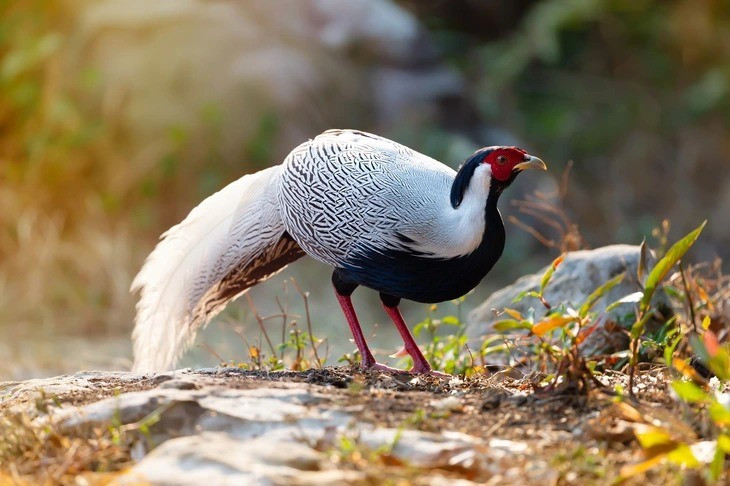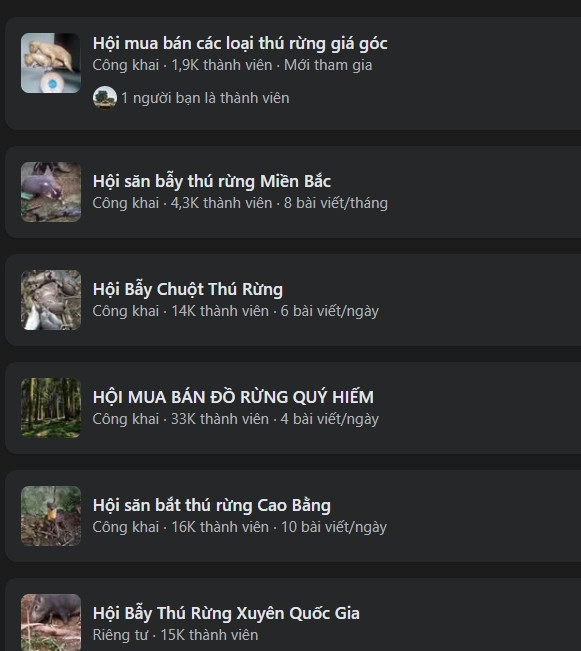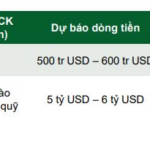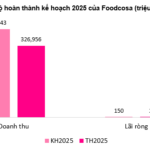White Pheasant Case Causes a Stir
A recent case involving Mr. Thai Khac Thanh (DOB 1980, from Do Luong, Nghe An) has caught the public eye. The Hung Yen Provincial People’s Court sentenced him to six years in prison for trading the white pheasant, a rare bird species. This case has sparked interest not only due to its legal aspects but also as a warning bell about the illicit wildlife trade.
The white pheasant (Lophura nycthemera) is a protected bird species, categorized as restricted for exploitation and commercial use (IIB) per Circular No. 27/2025/TT-BNNMT by the Ministry of Agriculture and Environment. Breeding, propagation, or trading of this species requires a legal permit.
Group IIB includes six other rare pheasant species: the white-throated pheasant, chestnut-breasted pheasant, red-throated pheasant, black-throated pheasant, and purple-winged pheasant, along with two duck species: the black-headed duck and sharp-winged duck.

White Pheasant. Photo: Vinwonder.
According to regulations, breeding these species is permitted only for conservation, research, or eco-tourism purposes at certified conservation facilities, with strict conditions on origin, quantity, enclosures, and personnel. The law takes a hard line against any actions that harm biodiversity, especially the trade of rare and endangered wildlife.
Mr. Thai Khac Thanh’s conviction and six-year sentence for trading the white pheasant have attracted significant public attention. On August 13, the Chief Prosecutor of Hung Yen Province filed an appeal against the entire first-instance verdict, requesting further investigation. Mr. Thai has been released pending the appeal process.
The “Underground Market” on Social Media
The current state of wildlife trading on social media platforms, particularly Facebook and Zalo, has become a severe issue, endangering the survival of rare species and harming the ecosystem.
Typing keywords such as “buy rare birds,” “forest pets,” “white pheasant,” or “buy and sell forest animals” on social media yields numerous secret groups and personal pages advertising the illegal trade of wildlife.
Within these secret groups, advertisements for buying and selling wildlife are frequently posted. The species on offer include forest animals, turtles, birds, musk civets, wild cats, and even products like bear paws and pangolin scales, with prices ranging from a few million to tens of millions of dong. Sellers typically post attractive photos and videos, conduct transactions via private messages, accept online payments, and promise delivery to distant locations.
In the group “Forest Animal Trading Club,” one account offers wild cats for 3 million dong each, while another buys various forest animals in any quantity. In the group “Wildlife Market,” an account sells musk civets for 5 million dong each, wild boar meat for 500,000 dong per kg (delivered by coach), bear paws for 3 million dong, and pangolin scales for 500,000 to 1 million dong per kg.
Some of the traded species are on the list of endangered and precious wildlife. Despite knowing that these actions are illegal, sellers believe they can evade detection by disguising the transportation of the animals.

A simple keyword search on social media reveals numerous secret groups engaging in the illegal wildlife trade.
According to the Vietnam National Education Center for Nature (ENV), in 2024, the community reported over 1,900 cases, including many online violations. Commonly traded species include monkeys, turtles, wild birds, ivory, rhino horns, and tiger claws. These activities occur on personal pages, in secret groups, and even on some e-commerce platforms.
In 2024, ENV recorded more than 200,000 individuals of wildlife and related products being advertised on this platform. The authorities initiated criminal proceedings in 180 cases, successfully prosecuting 166 (92.2%).
Since the beginning of this year, ENV has campaigned against online wildlife trade violations. Within just three months, ENV, together with the community, dismantled ten large wildlife trading groups on Facebook, with over 101,000 members, preventing hundreds of thousands of violators from accessing these groups. Facebook was identified as the platform with the most violations, accounting for over 95% of all online wildlife trade activities.
According to the Forestry and Forest Rangers Department, the current legal framework is stringent and has a strong deterrent effect. However, to effectively curb this issue, it is essential to raise public awareness and discourage any participation or facilitation of illegal wildlife trading. Reporting violations to the authorities is the only way to protect these precious species from the threat of extinction in the wild.
The White-naped Pheasant, an Endangered Species, Sold Rampantly Online.
The illicit wildlife trade is thriving on social media and seeping into e-commerce platforms, with hundreds of thousands of accounts openly advertising and selling a diverse array of wildlife.
The Economics Expert: ‘They Exploited My Image to Deceive the Gullible’
The proliferation of imposters masquerading as economic experts on social media has prompted genuine experts to issue warnings about these scams. Renowned economist Tran Dinh Thien has stated, “They are using my image to deceive unsuspecting individuals.”



















